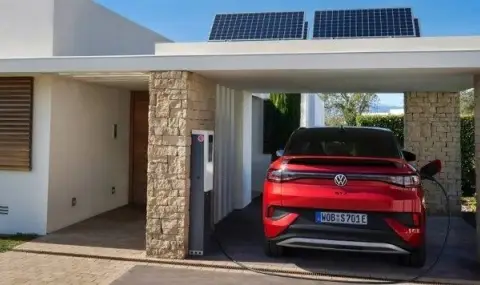Germany's Frauhofer Institute studied the economic benefits of V2G (vehicle to grid) technology, which is becoming increasingly widespread in Europe. In late October, the organization published a report suggesting that V2G could save Europeans up to €22 billion a year in utilities by 2040 and more than €100 billion between the 2030s and 2040s.
It is noted that if CO2 reduction targets are to be met, vehicle electrification will lead to an increase in demand for electricity and therefore a greater demand for renewable energy generation. Smart charging and bi-directional charging technologies offer significant advantages in reducing the load during this transformation.
In turn, the dependence on batteries for stationary energy storage is also decreasing. According to analysts, if intelligent and bi-directional energy transmission is implemented, cost savings of over 10% can be achieved. In the decade from 2030 to 2040, the cost gap could exceed €100 billion in energy system costs using the relative savings from 2030.
The additional cost of two-way charging decreases as the share of electric vehicles increases. The potential cost reduction comes from EVs helping to ensure a transition to renewable electricity on the grid. Electric vehicles at home or at work could reduce the need for stationary batteries by up to 92% in 2040.

Thanks to V2G, the European grid will be able to integrate up to 40% more solar energy power, storing its excess. This will make electric vehicles the fourth largest “supplier” of electricity in the EU and will reduce the need for additional generation.
According to a study published in the journal Science Advances this May, two-way charging could also extend the life of electric vehicle batteries through regular charging and discharging. The report states that battery life can be increased by 9% compared to standard EV charging methods because the vehicle is kept in an optimal state of charge.
